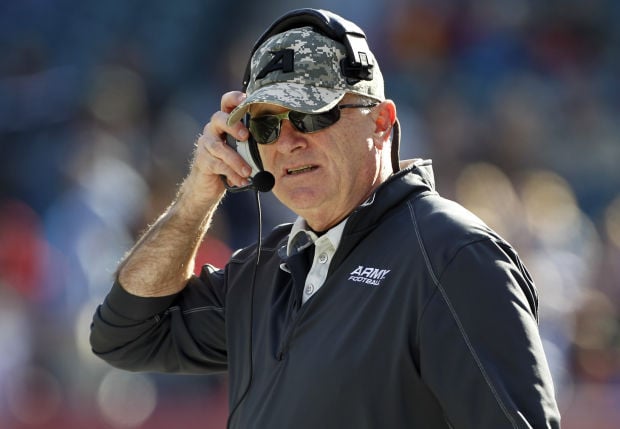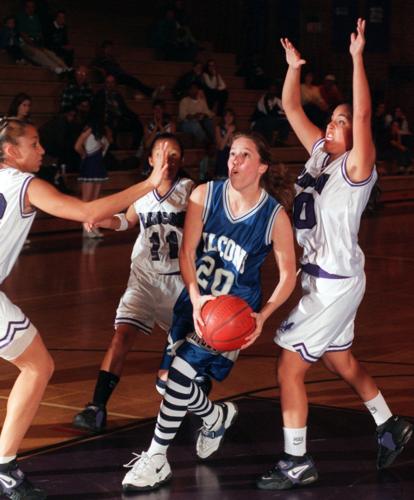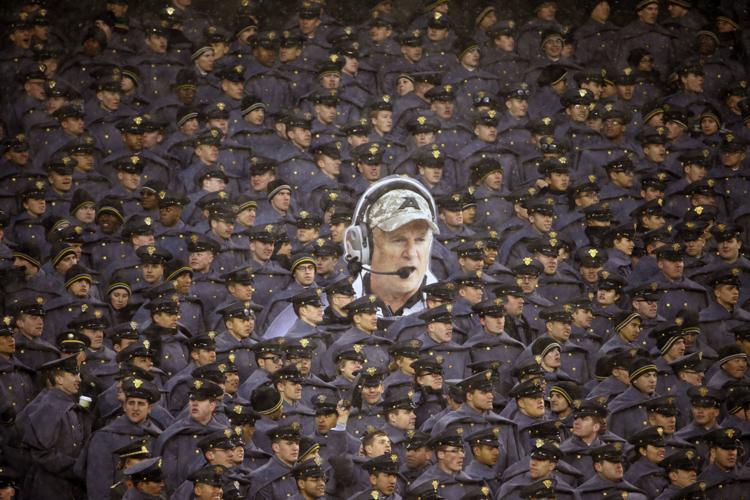The inaugural class of the Pima County Sports Hall of Fame, in 1990, was like picking fruit from the lowest branches. How could you miss?
Tucson’s most celebrated high school coaches, Rollin Gridley and Mary Hines, were part of the distinguished class. So was Mike Dawson, the most prominent football player born and raised in Tucson. And how about Alex Kellner, a major-league all-star, or Joe Batiste, America’s leading hurdler of the late 1930s and early ’40s?
Tucson’s first NBA All-Star, Fat Lever, was a unanimous selection in the class of 1990.
The only apprehension at the newly-created Hall of Fame was how long the fruit would last. The class of ’90 set ridiculously high standards; would the quality become strained as the years rolled by?
The answer to that is a resounding no. The class of 2018 was introduced Wednesday at in a news conference at the DoubleTree Hotel. As the names were announced, it was almost like: “Really? They’re not already in the Hall of Fame?”
The roll call is now approaching 400. It is a fertile sports field.
Introducing:
- Rich Ellerson. He’ll forever be remembered in Tucson as the creator of Arizona’s famed “Desert Swarm” defenses, and, after that, the head coach at Army. How’s that for a career?
Now retired, the Salpointe Catholic grad is a modest man who gave credit to those he worked with, and to the future Army lieutenants he feels so fortunate to help develop at West Point.
“I was a young graduate assistant coach at Hawaii in 1975,” he said Wednesday. “Dick Tomey was hired late in the year and inherited the coaching staff. He stuck by me. That relationship defined my career.”
As for those Desert Swarm defenses, built around consensus All-Americans Tedy Bruschi and Rob Waldrop, Ellerson played it straight.
“We had personnel better than anybody knew,” he said.
- Julie Brase Hairgrove. High school sports records are so fluid that a scoring record or a home run record seem to last, what, two weeks?
But Hairgrove scored 2,913 points at Catalina Foothills High School in the mid-’90s and it remains untouched in the history of Arizona girls prep basketball. That’s just part of why she is in the class of 2018. She led Foothills to the 1997 state championship, became a team captain at Arizona for three seasons and has coached in the WNBA for 14 years.
She answered the unavoidable “aren’t you Lute Olson’s granddaughter?” questions on Wednesday, but her identity long ago changed. She is probably the top girls high school basketball player in Tucson history, and her coaching career deserves a similar qualifier.
- Dave Feitl. The Santa Rita High School and UTEP grad chuckled Wednesday when asked why he didn’t play at Arizona from 1982-86?
“The simple answer is they didn’t recruit me,” he said. “I was open to playing at Arizona, but I never got an offer.”
That would be unthinkable today. Feitl, at 6 feet 11 inches, was the Arizona prep Player of the Year in 1980, became UTEP’s No. 2 career scorer and played five years in the NBA.
“If anyone has seen the movie ‘Glory Road,’ they know what I went through at UTEP,” he said.
“Coach Don Haskins pushed you to your limits and made you a better ballplayer. When I got to the NBA I had to guard Larry Bird in my first game. The next game I was told to guard Dr. J, Julius Erving. Coach Haskins helped to prepare me.”
- Jerry Carrillo. Look up the term “gym rat” and you’ll see the image of young Jerry Carrillo, who grew up across the street from Salpointe Catholic and made it the hangout of a lifetime.
After graduating from the UA, he accepted a part-time coaching job with his brother, Ken Carrillo, at small-town Jamestown College in New York.
“I was paid $2,000 a year,” Carrillo says now, laughing at the memory.
It was a down payment on a coaching career in which he has won more than 500 games at Cochise College, a school he has led to the NJCAA Sweet 16 three times from its tiny campus in Douglas.
Each winter, Carrillo and his Apache men’s basketball players climb onto a bus and drive all over the state, to Tucson, Yuma, Thatcher, Coolidge and parts unknown.
“We get $14 each (in traveling money),” he said. “But it works. We’ve sent more than 140 guys to four-year schools. Winning is fun.”
- Mark Hardy. After playing and teaching tennis most of his adult life, Hardy, a former state champion at Catalina High School and all-WAC player at Arizona, has a cherished baseball trophy at his house.
It is a Gold Glove trophy his son, Baltimore Orioles shortstop J.J. Hardy won during his All-Star baseball career.
Mark and J.J. Hardy are just the second father-son pair to be inducted simultaneously into the hall, and the father is happy his son chose a sport that wasn’t tennis.
“After my college days, I left on the pro tennis tour with $600 in my pocket and a $200 car payment,” he remembers. “I often slept in my car, but I survived for a few years. I rose to as high as No. 270 in the world.”
Don’t laugh.
Consider this: the 270th-ranked NFL player or NBA player today would be a millionaire many times over. J.J. Hardy, a Sabino High School grad who retired last season, earned an estimated $81 million in his baseball career.
- Nanci Reid. Most of what Reid touched in her 25-year career as interscholastics director for TUSD — basically the athletic director of a massive school district — turned out like her sports career at Palo Verde High School and the UA. A class act.
Now retired, Reid was asked Wednesday about the sports she played and helped to organize.
Volleyball? “I loved it,” she said.
Basketball?” Just loved it,” she said.
Swimming? “I enjoyed every minute of it.”
Her career at TUSD? “I loved the coaches, the athletes, the students, even the bus drivers,” she said. “I was so fortunate.”
Former Sahuaro High School state championship softball pitcher Courtnay Foster and Salpointe Catholic High School all-state baseball player Mark Carreon, who played 10 years for the New York Mets, San Francisco Giants and Detroit Tigers, were unable to attend Wednesday’s press conference. Foster is a softball coach at Alabama-Birmingham, and Carreon was at work in Texas.
“Courtnay started softball when she was 10 ,” her father, Dale Foster, said. “By 11 she turned to pitching and she was all ablaze about softball after that.”
Ablaze? Foster led Northwestern to the 2006 Women’s College World Series, winning a school-record 80 games.
Carreon’s father, Camilio Carreon, who was a catcher for the White Sox, Indians and Orioles, died in Tucson on Sept. 2, 1987. Mark Carreon had been recalled by the New York Mets and hoped to make his major-league debut that night. Instead, after his father’s funeral, Mark Carreon made his big-league debut six days later.
His father, much like the families of those in the class of 2018, would’ve been so impressed.






